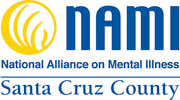Next Speaker Meeting:
Special Needs Trusts
Wednesday, January 16, 2019
6:30 to 7:00 Meet and Greet
7:00 to 8:30 Program & Q/A
Live Oak Senior Center
1777 Capitola Road
near 17th Avenue
6:30 to 7:00 Meet and Greet
7:00 to 8:30 Program & Q/A
Live Oak Senior Center
1777 Capitola Road
near 17th Avenue

Financial Options For Your Disabled Loved One
Presenting:
Barbara Loebner, an experienced attorney and Certified Specialist in Estate Planning, will discuss the importance of basic estate plan documents to managing your long-term needs and those of your children.
Topics:
- The role of a trustee and the pros/cons of selecting family vs. non-family members in this role.
- Define trustor, trustee and beneficiary roles.
- Explanation of the ABLE (Achieving a Better Life Experience) Act, its current status, and how it works.
- What are personal support services, who/how they are provided to the ill family member and the pros/cons of alternatives.
- What is the financial power of attorney? When/how/if it should be used with an ill family member?
- What is a medical directive? When/how/if it should be used with an ill family member?
FIND OUT ABOUT:
- The role of a trustee and the pros/cons of selecting family vs. non-family members in this role.
- Define trustor, trustee and beneficiary roles.
- Explanation of the ABLE (Achieving a Better Life Experience) Act, its current status, and how it works.
- What are personal support services, who/how they are provided to the ill family member and the pros/cons of alternatives.
- What is the financial power of attorney? When/how/if it should be used with an ill family member?
- What is a medical directive? When/how/if it should be used with an ill family member?
SPECIAL NEEDS TRUSTS And More!
Your Questions Answered!
The main reason to have a will that clearly spells out your directives for the care of your ill loved one is to ensure it is entrusted to someone who will fulfill your wishes. If you die intestate (without a will), your assets will go into probate, which takes time, is expensive, and makes it less likely your loved one will be cared for in the specific the way you outlined.
In addition to a will, you can set up a trust while you are living or to go into effect when you die. A revocable trust can be changed and modified as often as you wish. An irrevocable trust cannot be changed or modified. There are reasons for each but the revocable trust leaves you with the most flexibility should circumstances change.
ABLE (CalAble): The ABLE account was recently signed into law and is another way someone with a disability can work or invest without the risk of losing benefits as long as they were disabled before the age of 26. Medicaid and Social Security Income (“SSI”) will not be affected if they work and deposit money into the ABLE account. This allows them to have the self-respect and satisfaction of working without worrying that benefits will be adversely affected. The money in the account is not taxed, and no trustee is needed. It is easier to establish than an Special Needs Trust.
A Special Needs Trust allows a disabled person, who has assets in their name that would normally disqualify them from benefits, to continue getting state and federal benefits. For a loved one who cannot be trusted to manage money and may need financial support, which is not covered by benefits in the future, a Special Needs Trust is an excellent option.
There are a few restrictions as to how the money can be used. The funds can be invested and accessed by the person appointed as trustee. The money belongs to the trust, and if the trust earns money, you may be required to pay taxes. The funds cannot be used for the same things covered by benefits, i.e. food and housing, but can cover most other things such as education, travel, special equipment, respite care, legal expenses, and administering the trust to name just a few.
Medical Directive is also known as an Advanced Directive, or Power of Attorney (for healthcare). This allows you to give a trusted person the right to make decisions about your health care if you are not capable. If your loved one is disabled, you can have a medical directive for them if you are not able to fulfill that role.

